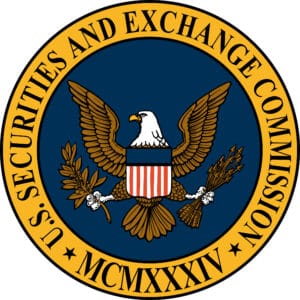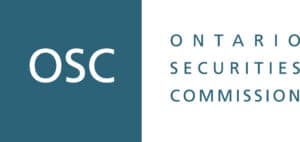On Thursday, September 30, 2021 at 12:00 PM CST, RIA Compliance Consultants will present a live compliance training webinar about the Compliance Risks of Using Wrap-Fee Program. During this webinar our Senior Compliance Consultants will discuss the Division of Examinations (the “Division”) of the U.S. Securities and Exchange Commission (“SEC”) Wrap-Fee Risk Alert about its assessment of investment adviser firms associated with wrap fee programs.
SEC Charges 21 Investment Adviser Firms for Form ADV Part 3 Filing and Delivery Failures
August 02, 2021
The SEC fines Investment Advisers for failing to deliver and file Form CRS, also known as Form ADV Part 3

On July 26, 2021, the Securities and Exchange Commission (“SEC”) announced that 21 investment advisers agreed to settle charges that they failed to file and deliver their CRS Relationship Summary, also known as Form ADV Part 3, to their retail investors. Click here to read the SEC’s full announcement.
Mississippi Adopts IAR Continuing Education Rule
July 29, 2021
Mississippi is the first state to adopt the Model Rule on Investment Adviser Representative Continuing Education (“Model Rule”) published by the North American Securities Administrators Association (“NASAA”) in 2020. Adopted without substantive changes, Mississippi’s new IAR CE rule closely tracks the Model Rule which will simplify compliance for investment adviser representatives registered in multiple states. As states continue to adopt the IAR CE Model Rule, NASAA will update its list of member states that are adopting the Model Rule.
During our July 2021 “RIA Website Accessibility” Webinar, RIA Compliance Consultants, Natalie Hadley, and Greg Rogers from Outlook Business Solutions discussed the importance of the accessibility of investment adviser’s website.
SEC Risk Alert – Wrap Fee Programs
July 26, 2021
SEC Risk Alert on Use of Wrap Fee Accounts by Investment Advisers
On July 21, 2021, the Division of Examinations (the “Division”) of the U.S. Securities and Exchange Commission (“SEC”) released a Risk Alert about its assessment of investment adviser firms associated with wrap fee programs. The SEC identified multiple areas where the investment advisers examined were deficient in their policies, procedures, and practices related to wrap fee programs, and further noted a range of industry practices that investment advisers might consider adopting to meet their fiduciary duty when recommending and managing wrap fee programs.
The SEC identified multiple areas where the investment advisers examined were deficient in their policies, procedures, and practices related to wrap fee programs, and further noted a range of industry practices that investment advisers might consider adopting to meet their fiduciary duty when recommending and managing wrap fee programs.
RIA Compliance Connection Agenda Released
July 21, 2021
We have released a tentative agenda for our August 25 and 26 investment adviser compliance conference “RIA Compliance Connection 2021.”
New Guidance on New York IAR Registration
July 14, 2021
The Investor Protection Bureau of the State of New York’s Office of Attorney General recently issued new guidance clarifying the state’s new process for registering investment adviser representatives (“IARs”). This guidance will be of particular interest to new and existing investment adviser representatives seeking registration in New York. Existing investment adviser representatives have until December 2, 2021 to comply with the registration requirement but must submit a Form U4 requesting investment adviser representative registration in New York on or before August 31, 2021.
 The Ontario Securities Commission recently published research findings focused on improving investment advisory client participation in designating a trusted emergency contact (referred to in the report as a “trusted contact person” or “TCP”). Although designating a trusted emergency contact is an important tool for investment advisers to protect a senior or vulnerable client’s investments against financial exploitation or losses due to diminished capacity, many clients decline to do so. This new report aims to help investment advisers and broker dealers utilize behavioral science to encourage its senior and vulnerable clients to name a trusted emergency contact. Despite having an intended audience in Canada, the report highlights a number of useful insights and strategies that can be implemented by investment advisers across the United States. To read the full report, click here.
The Ontario Securities Commission recently published research findings focused on improving investment advisory client participation in designating a trusted emergency contact (referred to in the report as a “trusted contact person” or “TCP”). Although designating a trusted emergency contact is an important tool for investment advisers to protect a senior or vulnerable client’s investments against financial exploitation or losses due to diminished capacity, many clients decline to do so. This new report aims to help investment advisers and broker dealers utilize behavioral science to encourage its senior and vulnerable clients to name a trusted emergency contact. Despite having an intended audience in Canada, the report highlights a number of useful insights and strategies that can be implemented by investment advisers across the United States. To read the full report, click here.
RIA Phishing Email Alert – Posing as FINRA
June 09, 2021
Recently, several of our RIA clients have received suspicious emails claiming to be from FINRA. The suspicious emails used the subject line “New FINRA Request – (Firm Name),” and came from an email address with the domain, “@gateway-finra.org” Below is a screenshot of one of these suspicious emails.
On May 18, 2021, South Carolina enacted new legislation intended to help investment advisers and broker-dealers protect clients who are vulnerable adults (such as seniors with diminished capacity) from financial exploitation. Similar to financial exploitation laws adopted by other states, South Carolina’s new law permits state registered investment advisers and broker-dealers to delay disbursements and transactions under specified, limited circumstances for a vulnerable client who is an “eligible adult” as defined by the statute. In addition, a registered investment adviser firm may contact other third parties previously designated by the vulnerable client, such as a trusted emergency contact, regarding the suspected financial exploitation. Firms are also permitted to report suspected financial exploitation to South Carolina’s Adult Protective Services and Securities Division on a voluntary basis. In the event that an investment adviser firm delays a transaction or disbursement, reporting to the specified agencies is mandatory. Click here to read South Carolina’s new financial exploitation law.
vulnerable adults (such as seniors with diminished capacity) from financial exploitation. Similar to financial exploitation laws adopted by other states, South Carolina’s new law permits state registered investment advisers and broker-dealers to delay disbursements and transactions under specified, limited circumstances for a vulnerable client who is an “eligible adult” as defined by the statute. In addition, a registered investment adviser firm may contact other third parties previously designated by the vulnerable client, such as a trusted emergency contact, regarding the suspected financial exploitation. Firms are also permitted to report suspected financial exploitation to South Carolina’s Adult Protective Services and Securities Division on a voluntary basis. In the event that an investment adviser firm delays a transaction or disbursement, reporting to the specified agencies is mandatory. Click here to read South Carolina’s new financial exploitation law.